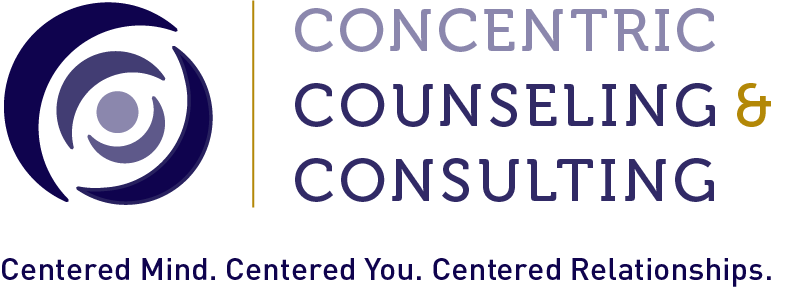Be What They Don’t Want You to Be
/By Concentric Therapist Christian Younginer, LCPC, NCC
“There's no earthly way of knowing
Which direction we are going
There's no knowing where we're rowing
Or which way the river's flowing
Is it raining, is it snowing?
Is a hurricane a-blowing? - uh!
Not a speck of light is showing
So the danger must be growing
Are the fires of Hell a-glowing?
Is the grisly reaper mowing?
Yes! The danger must be growing
For the rowers keep on rowing
And they're certainly not showing
Any signs that they are slowing!”
-Roald Dahl
In only 2 months there have been unconscionable shifts, worries, grief, and desecration. We’re drowning in more news than we could ever hope to process. So the murky mantra of “stay informed” keeps us glued to news and media. Born out of passion, fear, and indignation this mantra is a tricky one. It condenses down to a simple question:
How do I stay informed without spiraling?
Simply put, humans aren’t meant to know the opinions of thousands and thousands of people. It’s too much. Bellowing, personal attacks, and the derision of every person who ever held a thought on a matter exists for my consumption. Feasts of outrage, buffets of righteousness. The news self-selects for such outrage and fires it at us like a firehose. Sadly, this post could’ve been simpler before all this started, but now the firehose contains very real threats to long-held beliefs about how the world worked and the defilement of once unalienable rights.
The grisly Reaper makes headline after headline, sowing calamity and malignance into our already stressful days. He certainly shows no signs of slowing and the yes-men keep on rowing towards what feels like devastation. We could call it alarmist if only the alarms weren’t already screaming. And the comment section’s growing and shows no signs of slowing and the danger must be growing because the reaper keeps on crowing that the line we must be toeing bends backward into what we hoped was history.
So we put on our waders and stand, chest deep, in the floodwaters of news media, looking to stay abreast of executive orders, bills, and other sins. We believe it's the best that can be done in the face of such powerlessness and helplessness. But what happens when reassurance-seeking isn’t working and it’s 2am and we’re 100 comments deep in a Reddit thread on today’s fresh hell?
More information isn’t always reassuring. The reason is that news is an idempotent process. That is, further repeated action brings no change. Reading the news over and over brings no new information. Once we’ve learned a piece of information, leave the source and sit with it. Only when new information is released can we then learn something new.
It is imperative we discern the point at which our information-seeking becomes reassurance-seeking.
The point between when we’ve learned something, and then we return to another source to hear it put a different way, or a comment section where it’s retold 50 different ways, shellacked in bias, all with the exact same information we already had. It’s called doomscrolling for a reason.
Yes, alternative perspectives and educated deciphering of complex topics are important. Seek them out, but remain watchful for yourself. Look out for those signs you may be seeking reassurance rather than information.
When you find you’re hitting that point, don’t turn to your phone for reassurance, turn to people.
Real people. People you can hug, see, cry with, scream with. Skip the comment section. Read bell hooks. Write your anger down to keep it from corroding you. Listen to music that gives you power. Read poetry. Write poetry. Protest. Be vulnerable. Scream. Read Bertrand Russell. Love unrelentingly. Learn self-defense, then scream again that you even have to. Read Octavia Butler. Protect the identities of endangered people. Be what they don’t want you to be.
And when your nervous system feels shot from mere existence, listen to it. Take breaks. Prioritize stillness over productivity. Give yourself permission to produce less. Walk. Find beauty in the natural world. Learn how a grasshopper’s leg works. Savor. Go to therapy. Normalize slowness. Organize a cabinet. Read the Wikipedia page for Bread. Play. Invite friends over for soup. Breath deeply. Rest. Read Tara Brach. Grow plants.
It is as if the world has grown dark. But it is my hope that we can find our own way through the dark with whatever lights us. If you don’t know what this is, let’s find it through therapy. Perhaps finding your light can brighten another’s world too.
Maybe newspapers had it right. I’m going to try reading the news once per day and leaving it at that. Because there may be no way of knowing which direction we are going, and the grisly Reaper may keep mowing. And I know my privilege is showing, but I need to keep on going - to help those I can.







